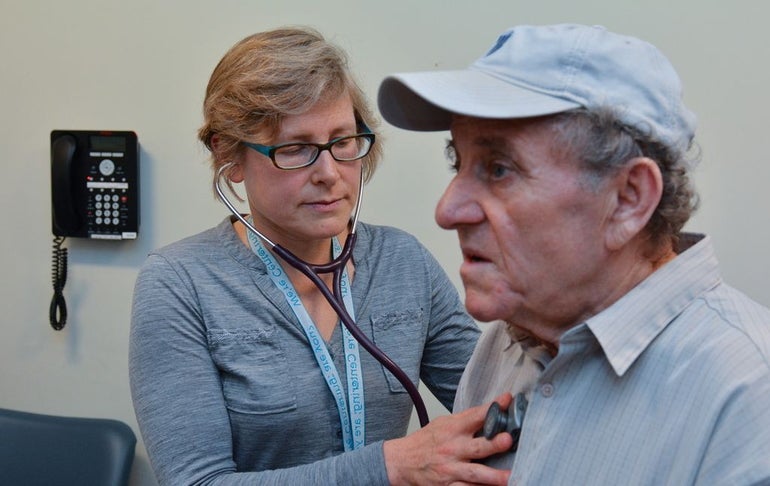On the verge of completing a year-long process to reassess eligibility for every member, the MassHealth public insurance program has now cut more than 350,000 people from its rolls since last April.
The caseload for the state’s combination of Medicaid and Children’s Health Insurance Program fell to about 2.04 million people by the end of March, down from the 2.4 million who were enrolled at the start of April 2023.
Officials removed about 74,000 people from MassHealth last month — almost 2,500 per day, on average — offset by 23,000 Bay Staters who newly joined the program and another 27,000 who regained coverage after previously being deemed ineligible.
Cuts were even more significant in February, when 122,000 people were divorced from MassHealth, 17,000 signed up and another 17,000 rejoined.
Through the first 11 months of the eligibility redetermination campaign, the publicly funded health insurance system’s caseload has dropped by nearly 358,000. Officials forecast at the outset of the effort that it would cumulatively decrease the MassHealth rolls by 300,000 to 400,000 people, while freeing up $1.9 billion to spend elsewhere in fiscal year 2024.
Most of the roughly 810,000 people who have left MassHealth since April 1, 2023 lost coverage for procedural reasons, according to state data. About 541,500 were disenrolled because they did not provide enough information for MassHealth to confirm whether they are eligible, and another 15,200 could not be reached by state officials. The remaining 259,400 Bay Staters were confirmed ineligible after a review.
A similar trend is underway nationally. According to health policy nonprofit KFF, 69 percent of Americans disenrolled from state Medicaid systems lost coverage for procedural reasons.
The overall MassHealth caseload still remains significantly higher than it was before the COVID-19 pandemic — the system had about 1.76 million members in February 2020 — and officials have said they expect enrollment levels to remain elevated.
Federal policy blocked states from removing residents from Medicaid during the pandemic. After the state of emergency ended, all 50 states had to embark on similar efforts to determine eligibility for their full rolls.
MassHealth conducted its reassessment in a staggered manner, adding more people to the review process each month.
A spokesperson said Monday that the redetermination process has now started for every single member, but stressed that final wrap-up data for the year-long campaign will not be available until June because Bay Staters get a month or longer to submit materials needed to determine their eligibility.
State law requires residents to carry health insurance or face a tax penalty. Over the same 11-month redetermination span, about 122,000 people who were declared ineligible for MassHealth newly enrolled in a plan available through the Massachusetts Health Connector marketplace, officials say. Others likely registered for private plans available through employers, but data is not available on the insurance status of all of the disenrolled.

